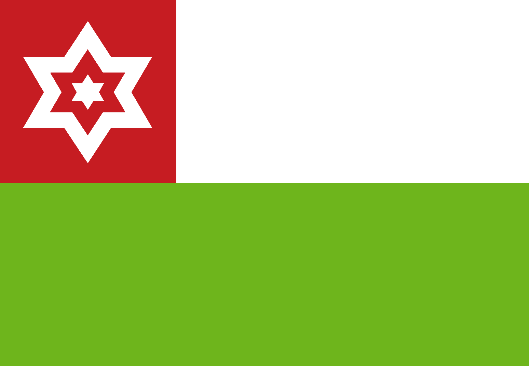Costak: Difference between revisions
No edit summary |
No edit summary |
||
| Line 138: | Line 138: | ||
==History== | ==History== | ||
===Pre 1000 AC=== | |||
Costak's history before roughly 1000 AC remains largely a mystery, it is presumed that a native people inhabited the area in small numbers before this date, however it is also believed that these people were wiped out by foreign diseases with the arrival of the Western Slavs. | |||
===1000 to 1649=== | |||
Slavic people from the South West of Thrismari, explorers, traveled across the Kaldaz ocean and reached the South West of Olivacia. These people lived off the land for a while before reaching the modern day Sevrek and Svyaz regions which were optimal for settling in small populations thanks to their temperate weather, fertile soil, and seaside position allowing for fishing. The region also remained fairly defendable thanks to the Northern mountains. | |||
===1650 to 1845=== | |||
As the colonial era began, the at the time king of Costak, Vadim Ivanov realized that the minor nation with its small industry, population, and military, would be unable to fully resist an invasion from a colonial power. With this realization, the king looked to Morrawia for aid, | |||
==Geography== | ==Geography== | ||
Revision as of 00:32, 30 October 2023
Costakan Sovern State Costak | |
|---|---|
|
Flag | |
| Capital | Sevrak |
| Religion | Novo Christianity/Novoism |
| Demonym(s) | Costakan |
| Government | Social Democratic Theocracy |
| Time zone | UTC+5 |
Costak, officially the Costakan Sovern States, is a country located in the far South West of Olivacia, a major portion of its population is centered around the capital of Sevrek with a substantial amount also being found in the Svyaz agricultural lands. The nation borders the Kaldaz which also plays a major role in the nation's history, culture and economy. Among the nations five states live a population of 6.243 million people.
Etymology
The name Costak comes from a combination of words from the Slavic language of Costakian. It combines the word for coast, that being "cost" alongside the word "parak" which means port. The reason for the nation, in essence, being called "port coast" is due to its orgins as a union between costal cities in the region before it was expanded to the Northern mountains.
Language
While common and a few other languages are also spoken across Costak due to immigration, Costakian remains the most spoken in the region. Costakian is a primarily Slavic language, with Costak's first settlers being those who sailed from Slavic lands in the West. There is however also influence from other languages such as common due to Costak's more local neighbors.
History
Pre 1000 AC
Costak's history before roughly 1000 AC remains largely a mystery, it is presumed that a native people inhabited the area in small numbers before this date, however it is also believed that these people were wiped out by foreign diseases with the arrival of the Western Slavs.
1000 to 1649
Slavic people from the South West of Thrismari, explorers, traveled across the Kaldaz ocean and reached the South West of Olivacia. These people lived off the land for a while before reaching the modern day Sevrek and Svyaz regions which were optimal for settling in small populations thanks to their temperate weather, fertile soil, and seaside position allowing for fishing. The region also remained fairly defendable thanks to the Northern mountains.
1650 to 1845
As the colonial era began, the at the time king of Costak, Vadim Ivanov realized that the minor nation with its small industry, population, and military, would be unable to fully resist an invasion from a colonial power. With this realization, the king looked to Morrawia for aid,
Geography
Environment
Administrative divisions
There are five semi-autnomous states within Costak, from North to south, these are
Demographics
TBA
Economy
TBA
Economy
TBA
